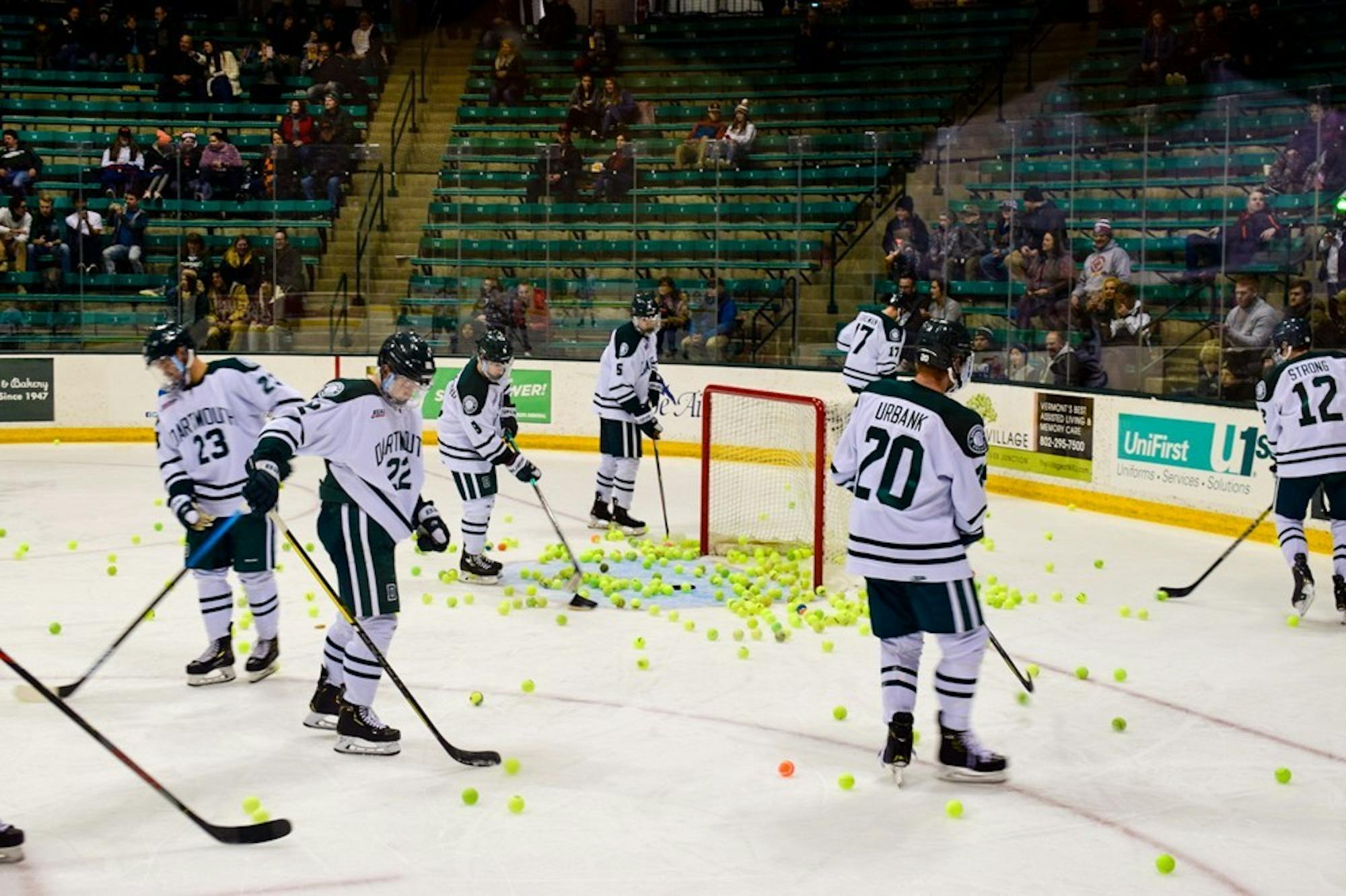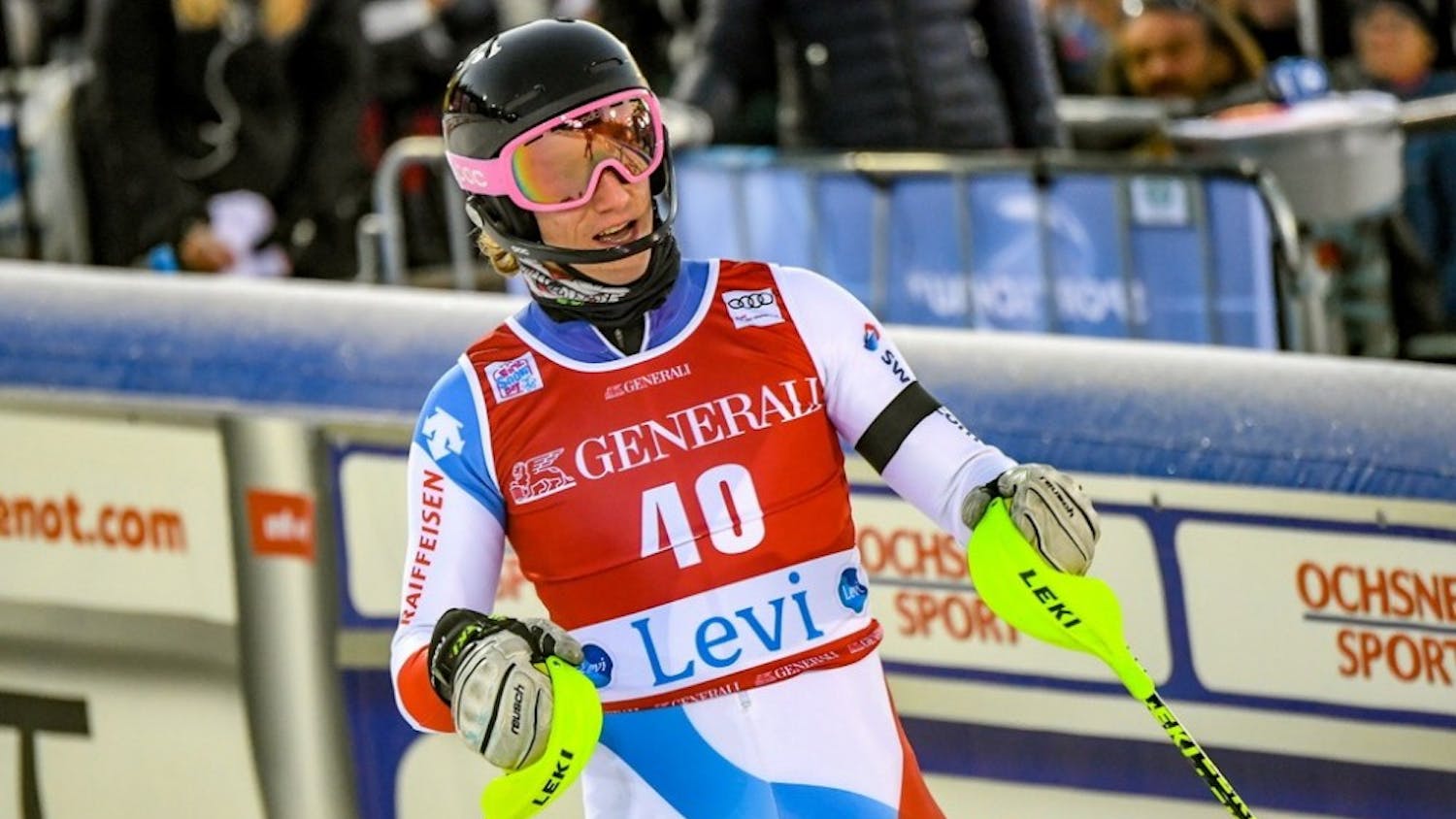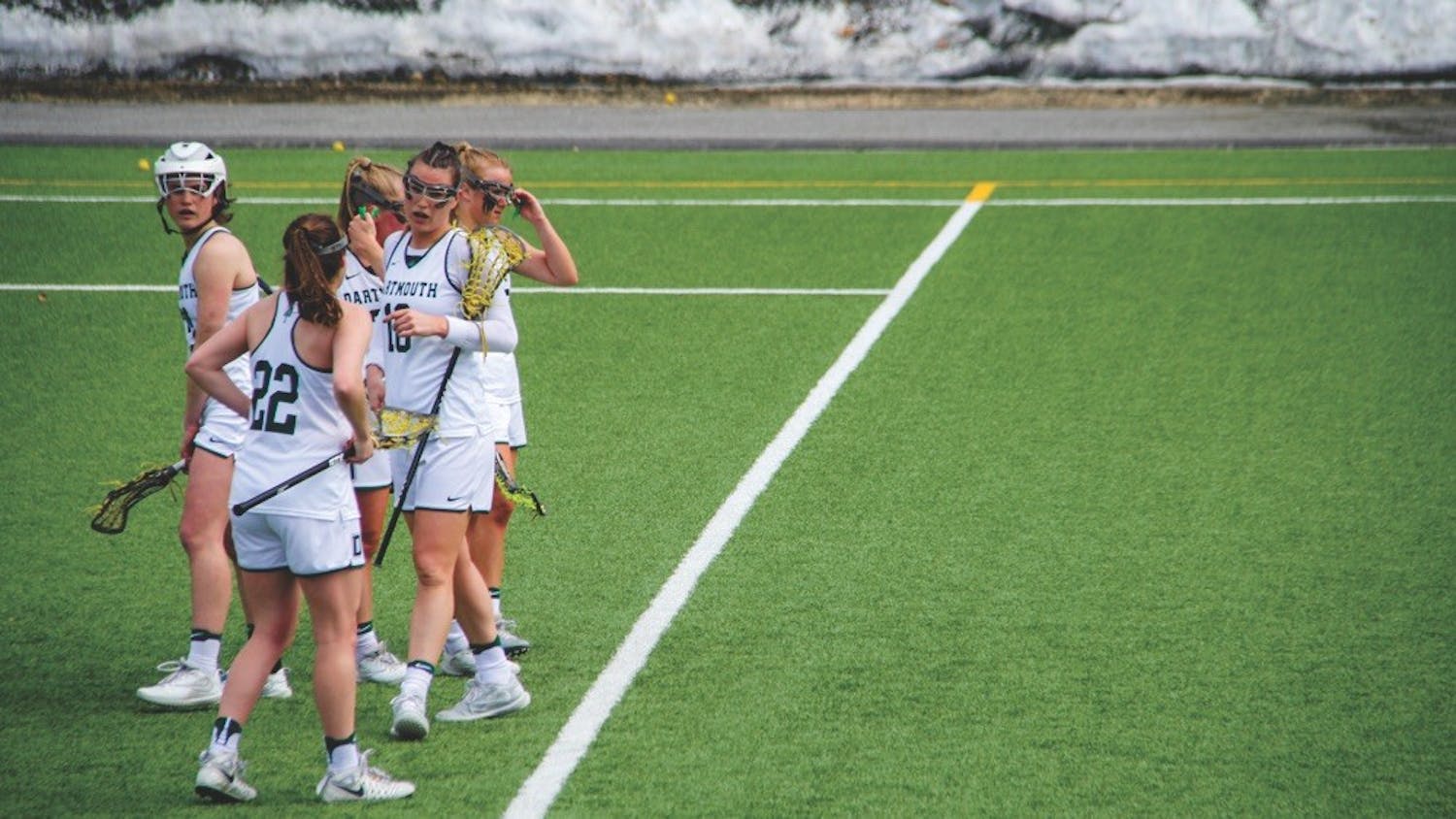After a series of COVID-19 outbreaks over the past two months were traced to ice hockey, New Hampshire Gov. Chris Sununu announced on Oct. 15 that all indoor ice skating rinks statewide will be closed for two weeks.
State officials said that at least 158 positive COVID-19 cases since August, including six specific outbreaks, were linked to indoor rinks. The temporary restrictions on ice arenas extend from youth to collegiate hockey, prompting a freeze on ice time at Dartmouth and the University of New Hampshire, the state’s two NCAA Division I programs.
In Hanover, men’s and women’s hockey players had just started their on-ice preparations for the upcoming season last Monday — just a few days before the announcement was made.
“We were all looking forward to taking that next step and getting on the ice,” men’s hockey captain Brendan Demler ’21 said. “Fortunately enough, we were able to get on the ice those first two days. But … it was just disappointing to have to take a step back and regroup.”
According to men’s hockey head coach Reid Cashman, the team had been closely following COVID-19 protocols outlined by the College and the athletics department while beginning their practice schedule.
As part of their return to practice plan, Cashman said that the team observed a limit of nine players on the ice at one time, dividing them into groups of three across the offensive, defensive and neutral zones, with one coach overseeing each group. The team went so far as to use three separate locker rooms at Thompson Arena for each pod to avoid close contact.
Women’s hockey captain Gabby Billing ’22 said that the women’s team followed a similar plan. Since only 12 women’s hockey players are on campus, the team was split into two pods of six, which each practiced at a different time of day. While on the ice, the team would split into two groups of three, one in the offensive zone and one in the defensive zone. The three coaches on the ice all wore masks.
“We were trying our best to follow the guidelines,” Billing said. “It was weird to not be out there as a team practicing, but it was nice just to at least be in that atmosphere again and get back out on the ice in a semi-normal sense.”
Cashman said that he is not concerned about the New Hampshire hockey restrictions extending beyond the two weeks, suggesting that Sununu may consider making an exception for Dartmouth to return before he reopens public arenas.
“I think there’s the possibility that [Sununu] could make an exception for Thompson Arena once he sees all of our protocols that we’re going through,” Cashman said. “I think our rink is one of the best-ventilated buildings on campus, to be honest.”
In the interim, both the men’s and women’s teams have continued working out in the weight room. The women’s team has been in the weight room three days per week and added an extra day of conditioning to make up for lost ice time. Billing said that the weight room workouts are the only times in which all 12 players can practice together.
She added that the women’s hockey coaches have been working on setting up an outdoor puck shooting area, but with the College’s restrictions, details remain unclear on whether the men’s and women’s teams could both use it.
“The shooting area that we do have is in [Davis Varsity House], and I think there’s some problems with the airflow in there,” Billing said. “So we’re trying to make things like that work, but it’s all kind of up in the air right now, so we’re just trying to stay motivated in the gym.”
Cashman reiterated that Sununu’s two-week halt on hockey does not necessarily throw a wrench in the team’s preparation for the season. As part of the Ivy League’s July announcement that canceled all fall sports, no competitions can be held on any of the Ancient Eight campuses until at least Jan. 1. An update on winter sports is expected in the near future.
“Jan. 1 is a long way away,” Cashman said. “Our guys are taking advantage of that. They’re in the weight room five days a week. They’re getting bigger, they’re getting stronger [and] they’re becoming better athletes, and so this little hiccup as far as on-ice is very minor for us.”
Demler, however, did express some concern about the possibility of the season being canceled.
“Of course I’m worried,” Demler said. “But our team is maintaining a very optimistic approach. Our team is going to operate under the assumption that we’re going to be playing this year. We’re going to do that until we’re told otherwise.”
Questions have been raised as to whether hockey itself is feasible during the pandemic. At Yale University, 18 members of the men’s hockey team tested positive last week. The Vermont Department of Health also announced on Tuesday that at least 30 confirmed cases were linked to an outbreak stemming from youth and adult hockey leagues.
Cashman, who was with the Washington Capitals during their time in the NHL’s Stanley Cup Playoff bubble in Toronto, which did not experience any COVID-19 outbreaks, does not believe that the sport itself is responsible for the virus’ spread. The NHL’s bubbles in Toronto and Edmonton did not see a single positive test.
“I think this is a very transmittable virus,” he said. “I don’t think it’s about the sport. I think it’s about the amount of people and the proximity of those people.”





